
Spinners is the third studio album recorded by American R&B group The Spinners, produced by Thom Bell and released in April 1973 on the Atlantic label. The album was the group's first for Atlantic after leaving Motown.
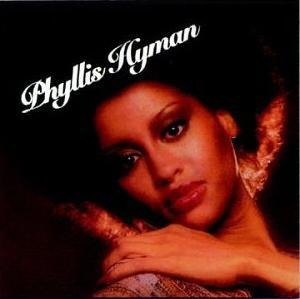
Phyllis Hyman is the self-titled solo debut studio album by American soul singer-songwriter Phyllis Hyman. It was released by Buddah Records in 1977. The album charted at number 107 on the Billboard 200 chart, and of the singles released from the album, "No One Can Love You More" was the most successful, charting at number 58 in the Billboard Hot Soul singles chart.

Together Again is an album by the American R&B vocal group the Temptations, released on Motown Records in 1987. It is the group's thirty-fourth studio album, and the first released under the Motown imprint. All of Motown Records' previous Temptations releases were made on the Gordy label, which was discontinued and whose artist roster and back catalog was consolidated into the main Motown label in 1987.

For Me It's You is the fifth studio album by the Canadian country music singer Michelle Wright. It was released on August 27, 1996, on Arista Nashville. Two tracks, "We've Tried Everything Else" and "Cold Kisses", were reprised from Wright's 1994 album, The Reasons Why. Raul Malo, the lead singer of the country music group The Mavericks, sings backup on the track "Love Has No Pride".
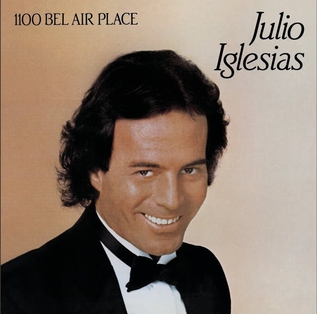
1100 Bel Air Place is an album of love songs performed by Spanish singer Julio Iglesias, released on 10 August 1984 by CBS Records internationally and by Columbia Records in the United States. It was the first of Iglesias' albums to be performed largely in English, and it is generally considered his breakthrough album in English-speaking markets.

Cocker is the tenth studio album by Joe Cocker, released in April 1986, his second on Capitol label. It features hit singles "You Can Leave Your Hat On" and "Don't You Love Me Anymore", the first made popular after its use in the famous striptease scene in the film 9½ Weeks. Released as a single, Cocker's version of the song peaked at No. 35 on Billboard Hot Mainstream Rock Tracks. The album also features rendition of Marvin Gaye's "Inner City Blues", a Motown legend's classic lament to urban decay.

Acid Queen is the second solo studio album by Tina Turner. It was released in 1975 on the EMI label in the UK and on United Artists in the US. Although it is a Tina Turner solo album, the first single, "Baby, Get It On," was a duet with Ike Turner, her musical partner and husband at the time. Acid Queen was her last solo album before their separation and her departure from Ike & Tina Turner Revue.

Bloodline is the thirty-first album by American singer/guitarist Glen Campbell, released in 1976.
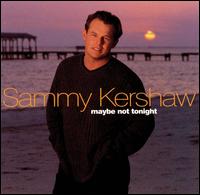
Maybe Not Tonight is the sixth studio album that was released by American country music artist Sammy Kershaw. It was released in 1999 on Mercury Records. The first album of his career not to achieve an RIAA certification, it also failed to produce any Top Ten country hits. The lead-off single, which was the title track duet with Lorrie Morgan reached #17 on the country charts. This song was concurrently promoted by Mercury and BNA Records, Morgan's label. Following it were "When You Love Someone" at #37 and "Me and Maxine" at #35. "Louisiana Hot Sauce", the fourth and final track, failed to chart. Also included is a cover of Bobby Vee's "More Than I Can Say", which water later a #2 pop hit for Leo Sayer in 1980. In addition, "How Much Does the World Weigh" was later recorded by Tracy Byrd on his 2001 album Ten Rounds. Maybe Not Tonight was also Kershaw's last studio album for Mercury. After it was released, Mercury issued an album of cover songs and a second greatest hits compilation before he exited the label.
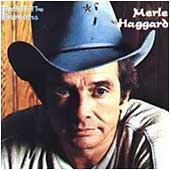
Back to the Barrooms is the 31st studio album by American country singer Merle Haggard, released in October 1980. He is backed by Norm Hamlet and Don Markham of The Strangers.

Out of Payne Comes Love was Freda Payne's sixth American released album, released in 1975. All of the tracks except for "Million Dollar Horse" would be later issued on the collection Lost in Love.

That's What Friends Are For is an album by American singers Johnny Mathis and Deniece Williams that was released in July 1978 by Columbia Records. The project was a continuation of the pairing of the artists that began on his previous LP, You Light Up My Life, which included "Too Much, Too Little, Too Late", the duet that was on its way to number one on three different charts in Billboard magazine as the recording sessions for this album got underway.

Andy is the thirty-sixth studio album by American pop singer Andy Williams, released in the fall of 1976 by Columbia Records. Williams is not as focused on covering pop hits and standards on this album and instead relies mainly on original or lesser-known songs. In the liner notes for the album's 2002 CD release, writer Richard M. Erickson explains that the album "was recorded at six different studios to accommodate Andy's touring schedule. One recording session was at a portable studio set up at a Marriott hotel."
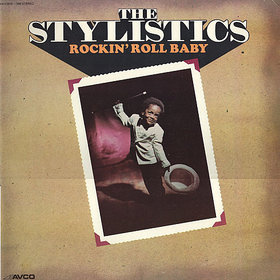
Rockin' Roll Baby is the third studio album recorded by American R&B group The Stylistics, released in November 1973 on the Avco label. It was produced by Thom Bell and recorded at Sigma Sound Studio North in Philadelphia. This was the group's last album produced by Bell.

Everything Must Change is the debut studio album by singer Randy Crawford released in 1976 on the Warner Bros. label.

A Special Part of Me is an album by American pop singer Johnny Mathis that was released on January 22, 1984, by Columbia Records and reunited him with his "Too Much, Too Little, Too Late" partner Deniece Williams on one of the LP's two duets, "Love Won't Let Me Wait", which is also the only song on the album that was previously recorded and released by another artist. This continuing trend away from the cover album genre would reach its limit with his next studio release, Right from the Heart, which only had original material.
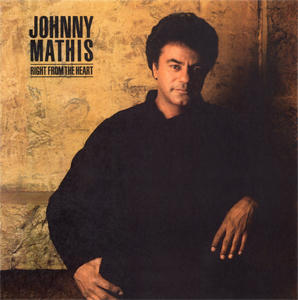
Right from the Heart is an album by the American pop singer Johnny Mathis that was released on March 18, 1985, by Columbia Records. It was his first album without songs that were previously recorded by other artists. The title track is one of the album's four ballads that, along with four of the remaining six up-tempo tracks, delve into the subject of relationships, but it is the synth-driven "Step by Step" and the anthemic "Hold On" on which Mathis take a break from the usual focus on love songs. The former offers the hope that can be found in change that comes gradually until "I can see the way free from yesterday to a new beginning". The latter stresses the importance of being oneself: "Life is a party. Why don't you come the way you are?"

Right Back Where We Started From is the debut album by British R&B and soul music singer Maxine Nightingale recorded and released in 1976 by United Artists.
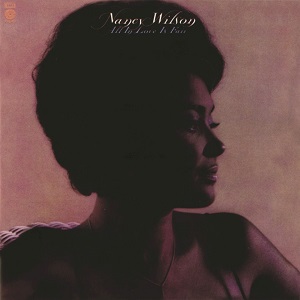
All in Love Is Fair is a studio album by American singer Nancy Wilson, released by Capitol Records in August 1974. It was her first album with producer Gene Page, who also did the arrangements and conducting and gave the album a more R&B-oriented sound. Musicians on the album include Ray Parker Jr., Wah Wah Watson, and Tom Scott. Marvin Gaye is also listed on the back cover as "The Phantom," with "warmest thanks." All in Love Is Fair includes one of the few songs co-written by Wilson.

Watching You, Watching Me is the eighth and final studio album from American soul singer Bill Withers, released on Columbia Records in 1985. This was Withers' first release in six years and would prove to be his final album before he retired from popular music.




















